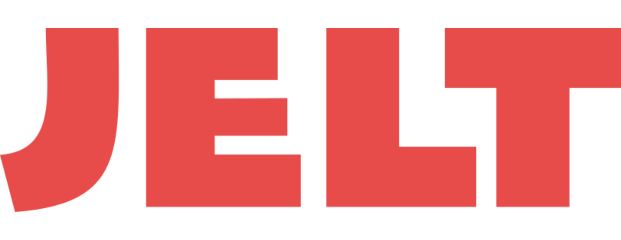Through Norms, beyond Norms: The Construction of the Socio-digital World
The developments in information technology do more than merely project our personal, economic and social relationships into a digital realm. In fact, they feed the construction of a socio-digital world where society and digital technology are increasingly bound together and new models of social order emerge.
Far from ending up in traditional legal norms, the regulation of such a hybrid reality is fed by the convergence of heterogeneous regulatory mechanisms, normative ecosystems that encompass code-driven techno rules, social norms and other emergent forms of organisation that shape the world we live in and that it is ever more important to explore both as single entities and in their mutual relations.
This special issue aims to convene scholars, practitioners and thinkers from diverse disciplines to delve into, debate and cultivate fresh insights into normativity as it manifests within and transcends digital social realities.
Themes and Topics
Institutional Facts and the Digital World: How do institutional facts shape and interact with the digital sphere? How does the digital sphere shape and interact with institutional facts and what is the role of data structure and metadata?
Regulation with (or without) Rules in the Digital World: Investigating the mechanisms of regulation and of “code as law” within digital environments. How does the digital architecture affect and regulate human behaviour independently of the norms?
Digital Regulatory Artifacts: Exploring the role and impact of digital artifacts in regulating behaviours and interactions within online environments. Investigating how digital tools, platforms and algorithms shape and enforce regulatory frameworks and examining the implications for social ontology and normativity in digital spaces.
Power Exercise in and through the Digital World: Exploring power dynamics in digital spaces, including issues of control, influence and resistance. How do digital platforms mediate power relations and what are the implications for societal norms? Explore the role of algorithms and platform design in digital social ontology, including an analysis of their implications for agency and power dynamics.
Digital Identity and Selfhood: Explore how identity and authenticity manifest and are constructed in digital contexts, including concepts such as online identity, self-presentation and digital identity management through, e.g., encryption, blockchain technology, biometrics.
Virtual Communities and Social Ontology: Investigate the nature of virtual communities and their relationship to physical communities and their moderation process, as well as the construction and experience of online social belonging.
Legal Design and Its Role in Shaping the Digital Social World: Delving into the emerging field of legal design and its significance in crafting the digital social landscape. Exploring how design principles, user experience and interdisciplinary collaboration influence the creation and implementation of legal frameworks, policies and regulations in digital environments. Investigating the potential of legal design to enhance accessibility, transparency and effectiveness in decision making, navigating digital rights, responsibilities and interactions.
Ethical Considerations in the Digital World: Explore the ethical issues arising in the digital world, such as those relating to privacy, consent, fairness or discrimination. Delving into the ethical implications connected to the role played by artificial intelligence in shaping digital social realities.
We welcome submissions that address these themes and topics, encouraging interdisciplinary perspectives and innovative approaches that extend beyond traditional boundaries.
Submission Guidelines
We invite original research papers, theoretical contributions, case studies and interdisciplinary perspectives that address the themes outlined above. Submissions should adhere to the following guidelines:
- Manuscripts should be prepared according to the journal's formatting guidelines.
- All submissions will undergo rigorous peer review to ensure scholarly quality and relevance to the special issue theme.
- Manuscripts should be submitted via mail to sociodigitalworld@gmail.com.
Important Dates
- Submission deadline: 28 February 2025
- Notification of acceptance: 30 April 2025
- Expected publication: 20 May 2025
Guest Editors
- Andrea Addis (Infora)
- Nicola Lettieri (National Institute for Public Policy Analysis/ISTC-CNR/EDGE Research Lab/University of Sannio/LUISS)
- Olimpia Giuliana Loddo (University of Cagliari)
About the Journal
JELT adopts a double-blind peer review process for acceptance.
Computer science, robotics and artificial intelligence are the forms of technology that have determined the most revolutionary social transformations in the contemporary era. The exponential acceleration of technological innovations seems now to have surpassed the possibility of science to reflect or to elaborate a full-fledged theory about it. Indeed, the crisis of Western science has shown that, perhaps, science itself – conceived as a free, disinterested form of knowledge without immediate practical implications – is not an irreversible conquest, but a singular historical event, limited in time and space, while the technological approach to knowledge may be the original form of apprehension of reality and a structural part of man's essence.
On this theoretical basis and within a particular declination of philosophy of law, the journal publishes contributions and reflections about ethical and legal issues of technological challenge in the third millennium, with particular attention to legal informatics, information technologies, robotics and artificial intelligence. The authors who present their works here are called to reflect critically and in a free and cross- disciplinary way about philosophical, logical, ethical and cultural aspects of techno law, that is the legal experience in the technological dimension of contemporary man.
Languages: We welcome submissions in English, Italian, and Spanish
Contact Information: For inquiries regarding this special issue, please contact sociodigitalworld@gmail.com.

 © 2025 Padova University Press - Università degli Studi di Padova
© 2025 Padova University Press - Università degli Studi di Padova